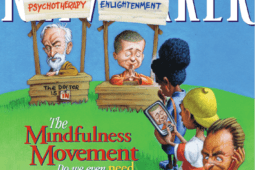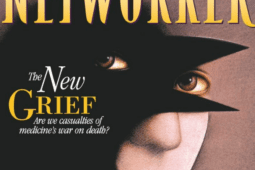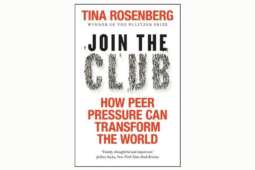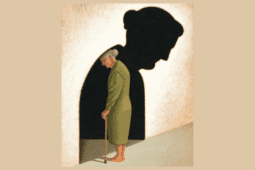The Alphabet Soup
Diana Fosha on the Convergence in Today’s TherapiesDiana Fosha talks about why so many acronymic therapies—ADEP, DBT, IFS, ACT—resemble each other, and what that says about the therapy field today. Read more
West Meets East
Creating a New Wisdom TraditionAs mindfulness practices work their way into the psychotherapeutic mainstream, we’re starting to ask more clinically sophisticated questions: Who needs what... Read more
Shadow Side Of Meditation
Getting Stuck in the Present MomentA Zen teacher describes the benefits and limitations of traditional meditation practice. Read more
Kids For Sale
The Realities of Sex Trafficking on Our StreetsThose gritty TV depictions of kids scratching out an existence on the streets aren’t just a sensationalistic fabrication. Read more
The New Face of Racism
Today, No One is Immune to the Effects of DiscriminationIn today’s multicultural world, no one is immune to the emotional fallout of discrimination. Read more
Editor's Note: September/October 2011
The Mindfulness Binge/Minding MindfulnessI first became aware that there was such a thing as meditation as part of my immersion in the cascade of mind-body-spirit esoterica unleashed by the human... Read more
Suggesting Mindfulness
Awakening the Hypnotist WithinAs a clinical intervention, mindfulness is best understood by stripping away its aura of mystical spirituality and understanding the crucial role suggestion... Read more
Unhappy Endings
Death as Technology’s SlaveA perverse set of financial incentives within the medical system too often leads to the promotion of maximum treatment, no matter what. When this happens... Read more
Creating New Paths for Change
How Peer Pressure Can Transform the WorldIn an age of cynicism, a refreshing look at “the social cure.” Read more
Bottom of the Ninth
In every love relationship, there are words that best remain unspoken. Read more
Each of Us Owes the Universe a Death
Reflections on Saying GoodbyeIn a very dark corner of each of our minds is a voice that says, “I’m going to die. One day, I’m going to die.” How we react to this voice determines... Read more
The Stories We Live
In therapy—as in Fiction—There’s Always PossibilityBoth doing psychotherapy and the writing of fiction are about stories. The essence of the art of both pursuits is the openness to the possibility that, no... Read more
Is Enough Ever Enough?
The Right-to-Die DebateWe’re living longer and longer, but this doesn’t necessarily mean that we’d choose to live through a painful terminal illnesses. Do we have the right to... Read more
Dancing with the Unconscious
A Mindful Approach to CommunicationSometimes conversation isn’t the best way to communicate with clients. There are times when therapists must go beyond the words. Read more
Love and Money
Couples FinancesIn these tough economic times, how do therapists distinguish between money troubles related to the recession and those that have psychological roots? Read more
A Match Made on Earth
Neil Clark Warren, the founder of the successful matchmaking site eHarmony, talks about what’s necessary to find a good, compatible match. Read more
Editor's Note: July/August 2011
Extended Life, Elongated GriefAs the writers in this issue powerfully demonstrate, medical science has made extended dying and its impact on relatives and loved ones—what psychologist... Read more
What Therapists Want
It’s Certainly Not Money or Fame!A close-up look at a 20-year, multinational study that captures the heart of therapists’ aspirations—and perhaps the soul of our professional identity. Read more
The Road To Mastery
What’s Missing from this Picture?Therapists usually enter the field because they’re drawn to it and have innate capacities to do the work. But whether they excel depends largely on their... Read more
The Most Famous Book Never Read
What Makes the Feminine Mystique so Special?Nearly 50 years after its publication, a look at the shortcomings and enduring power of one of the most influential books of our time. Read more
The Heart Speaks
Does Love Have a Role in Psychotherapy?Does love have a role in the therapeutic relationship? Read more
Red Speak, Blue Speak
The Psychology of Political RhetoricThe work of linguist George Lakoff on the psychology of political rhetoric has become must reading for anyone who wants to understand how candidates get... Read more
From Isolation To Connection
How to Create a Community of PracticeA modest proposal about how to get out of your cubbyhole, enliven your conversations with others in the field, and experience a new kind of professional... Read more
Mapping The Future
Symposium 2011 Charts Terra IncognitaEmerging from their monastic little cells, 3,000 psychotherapists had a schmooze-fest celebrating the power of face-to-face connection and joined forces to... Read more
Building A Culture Of Excellence
Anatomy of an Agency that WorksWe all have stories about the bureaucracies that stifle clinical creativity and seem to exist primarily to generate meaningless paperwork. Here’s a tale... Read more
Editor's Note: May/June 2011
A Community of PracticeThe Networker has always been a community affair. From our first issue, every glimmer of an idea for an article or theme of this magazine has been a group... Read more
Opening The Path
From What Is to What Can BeDown for the count, a therapist again discovers that even the most hopeless sessions can have a positive outcome if you stay with the process. Read more
Lost, and Found
Rediscovering a Subterranean Kingdom of MemoriesReconnecting with old memories in a father's special place. Read more




























